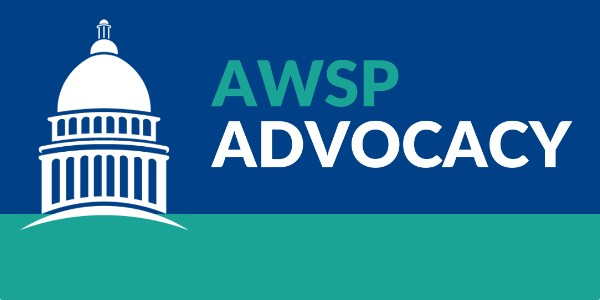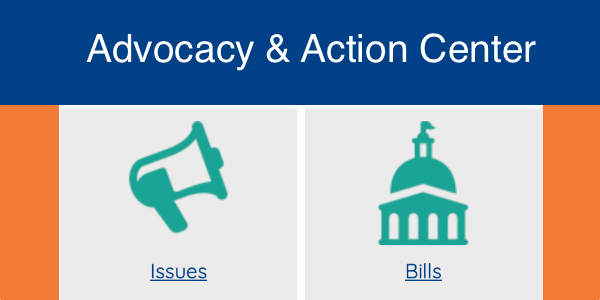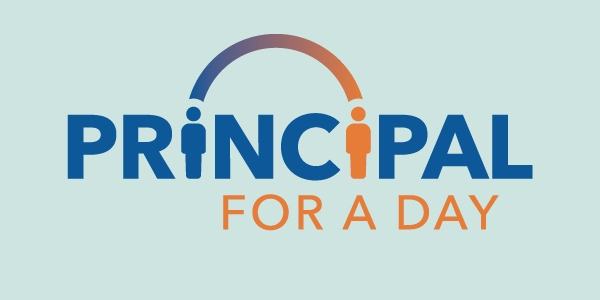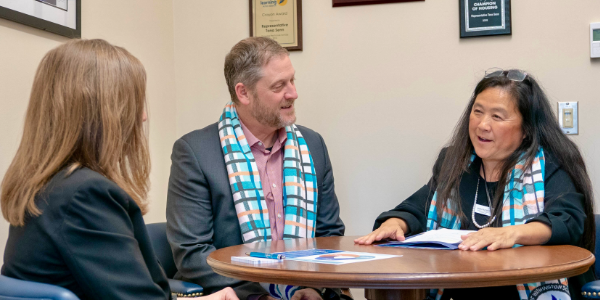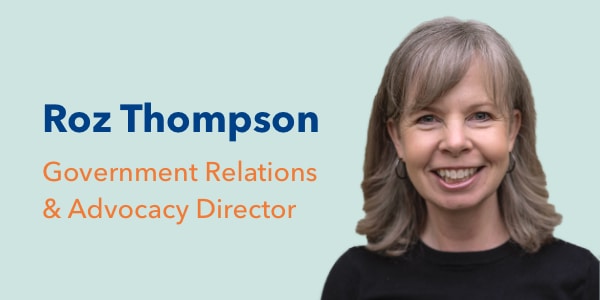Session has concluded and the Governor has acted. Here is brief summary of pension, health care, and other legislation that will impact school districts, present staff, and future retirees. The work to implement the changes continues.
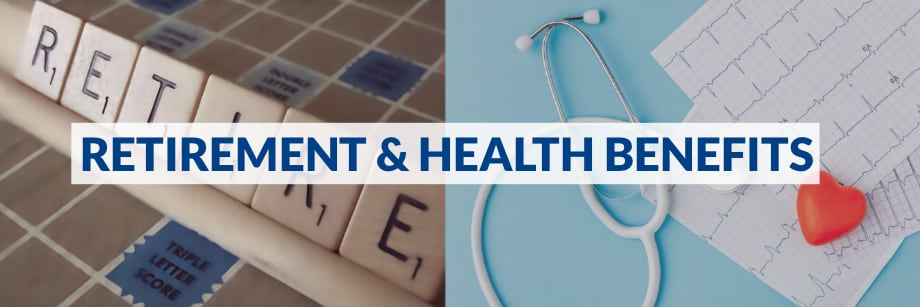
2024 Session Year-End Report
Though we may not have reached the heights we anticipated yesterday, today is a brand-new day to begin a new climb. ~ Chinonye Chidolue
Yesterday is gone. Tomorrow has not yet come. We have only today. Let us begin. ~ Mother Teresa
Session has concluded and the Governor has acted. Below is a brief summary of pension, health care, and other legislation that will impact school districts, present staff, and future retirees. The work to implement the changes continues.
Retirement/Health Related Proposals
SHB 1985: Providing a benefit increase to certain retirees of the public employees' retirement system plan 1 and the teachers' retirement system plan 1.
Comment: This bill provides a one-time 3 percent increase to the retirement benefits of retirees in the Public Employees' Retirement System and the Teachers' Retirement System Plan 1, up to $110 per month effective July 1, 2024. A reminder that last session the Select Committee on Pension Policy was directed to study and recommend an ongoing COLA for plan 1 retirees. Their recommendation must consider employer contribution rate stability and coordinate the effective date with the reduction or elimination of the unfunded actuarial accrued liability. This will be a key focus of their activity during the interim.
The Governor signed the bill. Effective 7/23/2023.
HB 2481: Waiving health benefit premiums in the public employees' benefits board.
Comment: This bill waives the payment of health benefit premiums for the deceased during the month of death for retired participants in the Public Employees' Benefits Board health coverage programs. The dependents/survivors will still be responsible for their share of the premium cost.
Signed and effective 6/6/24.
RE: SEBB/PEBB (Budget Provisos)
Section 212 (8)(a) allocates money and directs the Health Care Authority (HCA) to study consolidating the PEBB and SEBB programs. Report due Dec. 1, 2024 which should outline the steps needed to accomplish such a consolidation.
$100,000 is provided to report to the legislature by December 1, 2024, the necessary statutory and program changes required to achieve consolidation of:
- PEBB and SEBB into a single governing board
- The current PEBB non-Medicare and SEBB Active risk pools
- Existing eligibility provisions
- Benefit offerings into more aligned plans
The report should consider:
- Ways to engage with impacted participants
- Options to maintain eligibility
- Options to ensure equity
- Data and findings from previous reports related to consolidation
Section 212(9) directs the HCA to report to the legislature by Dec. 1, 2024, describing options and a recommendation for probable future coverage for approved glucagon-like peptide 1 agonists for the treatment of obesity and weight loss. (The same language is also under SEBB section 213 (2).
Other Areas of Potential Fiscal ($$) Impact and (Often, Unfunded) to Districts:
Below are selected titles and brief summaries of proposed bills that may have potential impact to the business operations of districts. WASA has a more extensive list and explanations.
SHB 1105: Requiring public agencies to provide notice for public comment that includes the last date by which such public comment must be submitted.
Comment: This bill mandates a public agency that is required to solicit public comment for a statutorily specified period of time and provide notice that it is soliciting public comment to include in the notice the first and last date of the comment period and the time by which written public comment may be submitted. • Subjects an agency to civil penalties for failure to include in a notice for public comment the first and last day of the comment period and time by which written comment may be submitted.
Signed and effective 6/6/24.
ESHB 1248: Concerning pupil transportation.
Comment: This bill provides that school districts may only enter into, renew, or extend pupil transportation services contracts with private nongovernmental entities that provide employee health and retirement benefits comparable to those received by school employees. • Directs the Office of the Superintendent of Public Instruction to reimburse school districts for increased costs due to providing these benefits and provides a formula for calculating the reimbursement.
The budget included $425,000 solely for supplemental transportation allocations contractor benefits. (Note: This is a one-time allocation. Future continued costs are subject to further appropriations in future budget(s).)
Signed and effective 6/6/24.
E2SHB 1618: Concerning the statute of limitations for childhood sexual abuse.
Comment: It eliminates the statute of limitations for recovery of damages as a result of childhood sexual abuse for all intentional actions occurring after June 6, 2024.
Signed and effective 6/6/24.
SHB 1905: Including protected classes in the Washington equal pay and opportunities act.
Comment: This bill extends the prohibitions on discrimination in wages and career advancement opportunities and the remedies to a person's membership in a protected class. Provides that protected class means a person's age, sex, marital status, sexual orientation, race, creed, color, national origin, citizenship or immigration status, honorably discharged veteran or military status, or the presence of any sensory, mental, or physical disability or the use of a trained guide dog or service animal by a person with a disability.
Signed and effective 7/1/25.
HB 1927: Reducing the number of days that a worker's temporary total disability must continue to receive industrial insurance compensation for the day of an injury and the three-day period following the injury.
Comment: It reduces the number of days – from 14 to 7 – that a temporary total disability must continue to receive workers' compensation time loss benefits for the first three days following the injury.
Signed and effective 6/6/24.
HB 2044: An act relating to standardizing limitations on voter-approved property tax levies.
Comment: This bill removes the restriction on levy lid lift funds supplanting existing funds.
Signed and effective 6/6/24.
SHB 2127 - 2023-24
Concerning workers' compensation incentives to return to work.
Comment: This bill modifies certain return-to-work policies and reimbursement amounts under the workers' compensation program.
- Increases the maximum amounts of reimbursements paid to employers participating in the Stay at Work Program and Preferred Worker Program by the Department of Labor and Industries (L&I).
- Increases the maximum amount paid to qualifying employers for job modification costs by L&I.
- Allows L&I to authorize payments for basic skills development for qualifying injured workers.
Signed and effective 1/1/25.
HB 2246: Concerning vacation leave accrual for state employees.
Comment: This bill increases the annual cap on the accrual of unused vacation leave for state employees from 240 hours to 280 hours.
Signed and effective 6/6/24.
SHB 2381: Increasing eligibility for economy and efficiency flexible school calendar waivers.
Comment: This bill expands eligibility for economy and efficiency waivers to the 180-day school year requirement to school districts with 1000 or fewer students, rather than 500 or fewer students, and increases the cap on the total number of districts that may seek such a waiver from 10 to 30.
- Requires school districts to include the following additional information in the waiver application when explaining the impact on employees in education support positions: expected position and work hour reductions, reductions in force, and the loss of work benefits or eligibility for work benefits.
Signed and effective 6/6/24.
E2SSB 5670: Permitting 10th-grade students to participate in running start in online settings.
Comment: Rising 11th-grade students may enroll in Running Start for up to ten quarter credits, or the semester equivalent, during the summer academic term. Rising 11th grade students are defined as students who have completed their tenth-grade year and have not yet begun their 11th grade year. Requires school districts to provide information about Running Start enrollment opportunities during the summer academic term.
Signed and effective 6/6/24.
ESB 5790: An act relating to bleeding control equipment in schools.
Comment: This bill requires school districts, charter schools, and state-tribal education compact schools to maintain and make available certain bleeding control equipment and acquire and maintain at least one semiautomatic external defibrillator on each school campus beginning in the 2026-27 school year.
- Specifies that schools must have a certain number of employees trained to use the bleeding control equipment.
- Each school must have a minimum of two employees per school who have completed training on using the bleeding control equipment. If a school has more than 1000 students it must have one trained employee per 500 students. Directs school districts to comply with existing requirements regarding semiautomatic external defibrillators. School districts are encouraged to implement the requirements in this section during the 2024-25 and 2025-26 school years.
Signed and effective 6/6/24.
ESSB 5793: Concerning paid sick leave.
Comment: This bill allows an employee or transportation network company driver to use paid sick leave when their child's school or place of care is closed after the declaration of an emergency.
• Modifies the definition of family member for the purpose of using paid sick leave to include any individual who regularly resides in the employee's home or where the relationship creates an expectation the employee care for the person, and that individual depends on the employee for care, except it does not include an individual who simply resides in the same home with no expectation the employee care for the individual.
• Provides that a child also includes a child's spouse. Requires the Department of Labor and Industries to develop materials and conduct outreach to inform individuals and businesses about the new provisions of the act.
Signed and effective 1/1/25.
SSB 5804: Concerning opioid overdose reversal medication in public schools.
Comment: This bill requires all school districts, charter schools, and state-tribal education compact schools, not just those with 2000 or more students, to obtain and maintain at least one set of opioid overdose reversal medication doses in each of the public schools and to adopt a related policy.
The Governor signed. Effective 6/6/24.
ESB 5824: Concerning the dissolution of libraries and library districts.
Comment: This bill changes the number of signatures required to file a petition to dissolve a library created by a county, city, or town from 100 taxpayers to 25 percent of qualified electors of that county, city, or town.
• Increases the percentage of voters required to file a petition to dissolve a library district, and consequently a library created by that district, from 10 percent of eligible voters residing outside of incorporated cities or towns to 25 percent of all eligible voters residing in the library district.
• Removes the exclusion of qualified electors residing in incorporated cities or towns within library districts from voting on propositions to dissolve a library district.
• Authorizes a library created by a county, city, town, or library district to also be dissolved by independent action of the legislative body of the governmental unit in which the library is located.
Signed and effective 6/6/24.
SB 5883: Concerning the burden of proof for special education due process hearings.
Comment: A school district has the burden of proof, including the burden of persuasion and production, when it is a party to a due process hearing regarding the identification, evaluation, reevaluation, classification, educational placement, disciplinary action, or provision of a free, appropriate public education for a student with a disability. The burden of proof must be met by a preponderance of the evidence. A parent or person in parental relation who seeks tuition reimbursement for a unilateral parental placement has the burden of proof, including the burden of persuasion and production, on the appropriateness of that placement.
Signed and effective 6/6/24.
Concerning Actuarial Funding (UAAL) of State Retirement Systems.
Comment: The State Actuary expects the Plans 1 UAAL will be paid off in FY 2026 for PERS and FY 2023 for TRS, excluding the remaining unfunded cost of benefit improvements. (SHB 1985 will slightly affect the rates and the UAAL: A projected increase of .08% in PERS/SERS, and 0.16% TRS/PERS 1):
The existing minimum UAAL (Unfunded Liability) projected rates and (funded status) are:
|
|
FY 2024
|
FY 2025
|
FY 2026
|
FY 2027
|
| TRS1
|
6.49% (101%)
|
6.46% (122%)
|
0.71% (100%)
|
0.71% (131%)
|
| PERS1
|
3.85% (85%)
|
3.85% (99%)
|
3.85% (100%)
|
3.85% (120%)
|
A reminder: As a result of passage in 2023 of ESSB 5294, the Select Committee on Pension Policy is directed to study and recommend an ongoing COLA for plan 1 retirees. The recommendation must consider employer contribution rate stability and coordinate the effective date with the reduction or elimination of the unfunded actuarial accrued liability.
One additional positive assist to the budget was adjustments to pension contribution rates. SB 5294, as adopted, reduced contribution rates for the Unfunded Liability in the Public Employees’ Retirement System (PERS) Plan 1 and the Teachers’ Retirement System (TRS) Plan 1. This is helpful for local governments, including school districts—AND it provides a projected $804 million in savings for the state in 2023–25 (and is projected to grow to $1.9 billion over the next five years). SB 5294 also reduced (from $800 million to $250 million) a scheduled advance payment into the Teacher Retirement System Plan 1. This saved another $550 million.
The Governor signed that bill, effective 7/1/2023.
Other Areas Of Potential Fiscal ($$) Impact And (Often, Unfunded) To Districts Selected Financials
Unless noted otherwise, funds are apportioned for ‘allocation purposes’ only.
Substitute Teachers (2023-2024 and 2024-2025 school years): Four (4) days per formula generated staff at $151.86/day.
Fringe benefits/ formula generated staff:
| Certificated/Administrative
|
2023-2024
|
17.33-17.97%
|
|
|
2024-2025
|
17.51-18.15%
|
| Classified Staff
|
2023-2024
|
18.56%-22.06%
|
|
|
2024-2025
|
18.16%-21.66%
|
SEBB Insurance Benefit per formula generated staff:
- 2023-2024: $1,100.
- 2024-2025: $1,178
PEBB Insurance Benefit per formula generated staff:
- 2024: $1,145.
- 2025: $1,170
Health care remittance paid to HCA Per FTE:
- $68.41 Sept. 1. 2023
- $80.32 Sept. 1, 2024
What Will The Future Hold?
Predictions are an exercise in fantasy, but what the heck!
1) 2024 will be a presidential election year. Turnout should be high. In Washington State, the race to succeed Governor Inslee will be competitive with the likely candidates to be Attorney General Bob Ferguson and former Congressman/Sheriff Dave Reichert. However, there are other credible candidates running.
2) Filing week for candidates is May 6th- May 10th.
3) There will be some expensive races: The Governorship, Attorney General, and others yet to be announced. All House members and half the Senate members will be up for re-election. The 5th and 6th Congressional districts are also open with credible candidates.
4) There have been a number of retirements of both House and Senate members, as well as a few who have chosen to run for higher or different offices. This means a new slate of legislators who will need education on the issues of import to school and retiree leaders.
5) The recent court-mandated reorganization setting new boundaries for a legislative district in the Yakima Valley has changed a number of boundaries and affected current legislators. It pushes GOP Sen. Nikki Torres of Pasco, the chamber’s lone Republican Latina, out of the 15th District into the neighboring 16th. State law will allow her to finish her term – which runs through 2026 – even though she does not live within the boundaries.
However, she would need to move into the redrawn 15th to seek re-election. Or she could move into the newly drawn 14th district and run this year. A third option is she could challenge fellow Republican Sen. Perry Dozier of Waitsburg who is up for reelection in the 16th district this year.
The new map splits Wenatchee and East Wenatchee. That means Sen. Brad Hawkins, R-East Wenatchee, who represents the 12th District, finds himself in the 7th District now served by Sen. Shelly Short, R-Addy.
6) The election may well see a turnout of a more moderate, conservative voter influencing a number of races.
7) The ‘progressive’ wing of the Democrat Party (based in King County) will continue to advocate for socially liberal policies. This has led to the fracturing of unanimity within the caucus as the more moderate Democrats object. The recent scuffles over housing, allowing strikers to receive unemployment payments, and even the move to eliminate natural gas are just a few examples of the D’s losing unanimity. This internal conflict is exploited by the R’s whose positions often are supported by the more moderate D’s. Stay tuned.
8) Some bills that did not pass in 2023 are likely to reappear. (Opinion) These include:
- SB 5978 Re: Authorizing the office of the superintendent of public instruction to function as a guarantor for a county when the county provides a loan to a school district.
- This bill would authorize the Office of the Superintendent of Public Instruction (OSPI) to serve as guarantor for a county that has agreed to provide a loan to a school district that is on binding conditions.
- As more and more districts experience fiscal challenges, there could be more districts than the current four (4) who are having to take out loans to meet their financial obligations. This bill really is a signal of how serious the problem could become. It did not advance during the 2024 session but was introduced by the Chair of the Senate Ways and Means Committee who clearly sees a potential need for such a vehicle.
- SB 5059 Re: Prejudgment Interest. Of concern is that interest in judgments for tortious conduct of public agencies, individuals, and other entities is modified to run from the date on which the cause of action accrues. Interest in judgments for tortious conduct that occurred while a plaintiff was a minor begins to run from the date the action commenced or the date the minor turns 18 years old, whichever is earlier, at the same rates as currently provided in the statute.
Fred Yancey
The Nexus Group LLC



